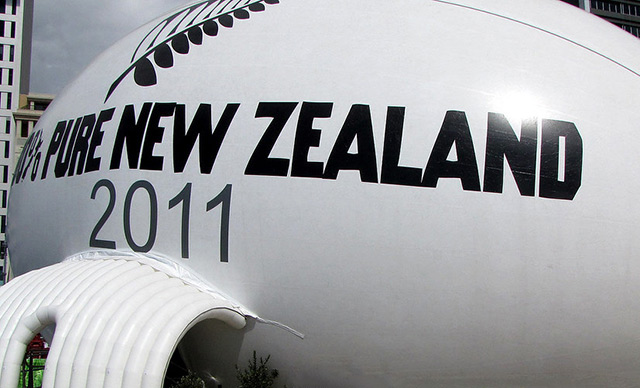The Rugby World Cup is a premier international rugby union tournament held every four years, featuring top teams from around the world.
 2011 New Zealand Rugby World Cup ball
2011 New Zealand Rugby World Cup ballThe World Cup idea is born
In June 1983 Australia proposed a World Cup and put itself as host, and the following year New Zealand put forward its case. In a major breakthrough, The International Rugby Board instigated a World Cup feasibility study, with Australia and New Zealand forming a joint working committee and the study began in December 1984.
At a meeting in Paris on 20-21 March 1985, the International Rugby Board held a vote on the concept. It was no secret that England, Scotland, Ireland & Wales were opposed to the idea, with Australia, New Zealand & France in favor. South Africa's crucial vote went in favor of the event, then when England and Wales changed their mind and voted in favor the World Cup finally had the go ahead.
The first Rugby World Cup
The inaugural World Cup event was co-hosted by Australia and New Zealand. Teams from 16 countries competed, and the final was won by New Zealand (more about 1987)
Qualifying
From 1987 to 1995, 16 teams contested the final rounds after qualifying matches involving all the other International Rugby Board member unions over a two-year period. In 1999 the competition expanded to 20 teams playing off for the final.
Related Pages
- Trivia from the Rugby World Cup
- Rugby World Cup Firsts
- Winners of the Rugby World Cup


 Current Events
Current Events